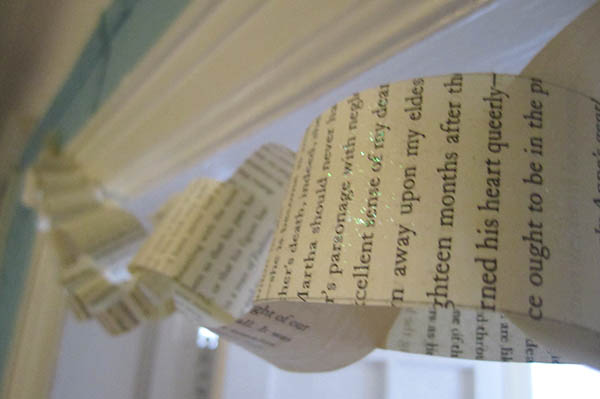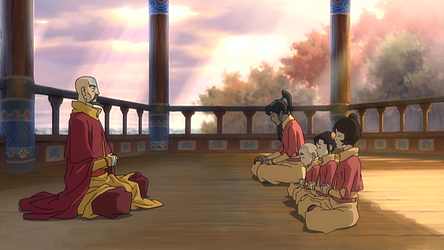Beckett’s Last Tape; Or, Waiting for Quantum Leap
Samuel Beckett was born on April 13, 1906 outside of Dublin. Sam Beckett was born August 8, 1953 in Indiana, eight months after the world premiere of Samuel Beckett’s acclaimed stage play Waiting for Godot in Paris, France. Samuel Beckett died on December 22, 1989 — just 9 months after Sam Beckett made his first appearance in the series premiere episode of the NBC time travel drama Quantum Leap.
Coincidence? Well, okay. Maybe. But still. Bear with me here.

Over five seasons, Quantum Leap told the story of Sam Beckett as he “leaped” through time, inhabiting different bodies in an effort to affect the future, and ultimately find his way back home (to 1995, when time travel was obviously first invented). Whether it is divine will or chaotic happenstance that guides him in his journeys is never made explicitly clear.
Even when he leaped into his own body at a younger age — or his brother’s friend, changing history and saving his brother from dying in Vietnam, or the body of a lecherous college professor whose actions (as driven by Beckett) inadvertently prevent his fiance from leaving him at the altar — Beckett is unable to affect his own present. At one point, when he temporarily arrives back in his native time, Beckett’s “Swiss Cheese memory” begins to re-collect the details of his life that his nonlinear actions have changed.
But none of it changes his “present” condition (in the forward-moving linear narrative of the story), and Sam Beckett is stuck leaping through time indefinitely. No matter what he does to affect the past, he still ends up lost in time for the rest of his life — and possibly beyond. That’s a fairly bleak and existential outcome for a syndicated network television show. It’s the kind of thematic message that would be more at home in, say, one of the stories of Samuel Beckett, wouldn’t you think?

Samuel Beckett, meanwhile, is highly regarded as either the last Modernist or the first Postmodernist. His work often expressed a tragicomic tone, featuring hilariously absurd characters that existed and interacted in the bleakest, most dire circumstances imaginable. When reading or seeing a Beckett play, one can’t help but laugh at the existential angst of it all. From Murphy to Endgame, Beckett’s stories generally involve ridiculous things like a house at the end of the world inhabited by a blind landowner that cannot stand and a servant who cannot sit. And regardless of what they do or do not do, the world outside is still ending, and they are still stuck in their circumstances.
So to imagine that a Samuel Beckett story might involve a time traveler who uncontrollably leaps into the bodies of exotic dancers or Elvis but still cannot affect his own linear life or circumstance — that might not be so difficult to imagine, would it?

In some ways, Quantum Leap is just a five-season-long adaptation of the Beckett play Krapp’s Last Tape. In the play, which is simply set “in the future” (*cough*justlikeQuantumLeap*cough*), the eponymous character listens to autobiographical recordings of himself at various earlier stages in his life, occasionally interacting with his own pre-recorded voice (which of course does not respond). Through the process of re-living his life through these tapes, Krapp comes to a better understanding about his family, his relationships, and his life — but of course, it’s too late for these realizations to have any effect on his life.
Sam Beckett goes through a similar experience to Krapp in the third season premiere, “The Leap Home.” In the two-part episode, Sam Beckett first leaps into his own body during his teenage years and attempts to prevent both his father’s heart attack, and his brother’s deployment to Vietnam. Unfortunately, Sam — like Krapp — is unable to change history by re-visiting this crucial period in his life (although he does win a crucial high school basketball game), but does come out of the experience with a greater understanding of his own past.
(Samuel Beckett later returned to the idea of a character listening to his own monologues from different eras in a short play appropriately titled That Time. In that play, the text of the three interwoven monologues is rendered without punctuation, but features a recurring chorus of the phrase “that time,” and ultimately ends with the phrase “no time” repeated twice. Do I really need to explain how this might be thematically related to a show about time travel?)
Quantum Leap episodes such as season one’s “Double Identity” or the fifth season three-parter “Trilogy” (‘natch), in which Sam Beckett leaps into the same situation several different times, each time inhabiting a new body in an attempt to change some crucial historical error, also resonate thematically with the Samuel Beckett one-act play Play.
Again, are we seeing the patterns here?

In Play, three heads in urns take turns telling the story of their relationship together — an extramarital affair. At the “end” of the play, the play goes back to the beginning and happens again (non-linear time travel much? Think about it…), only this time, the characters change lines, each one conveying a different perspective on the emotional drama of this affair than the story that he or she had told the last time around.
The story is the same, but the lines are delivered from different characters — not unlike Sam Beckett’s repeat trips to the same timeline in different bodies. At the (next) end of Play, the play begins again, with the characters swapping lines again, before fading to black (because at that point, the audience gets it. We hope). This suggests an endless cycle of re-living moments from different perspectives, over and over without end. Similarly, the series finale of Quantum Leap ends with a brief epilogue of text on black that informs the viewer that Sam Beckett never returns home, and is instead forced to leap through time indefinitely for all eternity. In the finale, Sam Beckett also interacts with a mysterious bartender who may or may not be God, thus lending some credence to the theory that he himself was trapped in some kind of a temporal limbo; most interpretations of Play agree that the play is set in limbo as well.
I’m not saying that there was necessarily a conscious decision on the part of the creators of Quantum Leap to name their time-traveling protagonist after an acclaimed writer whose work often experimented with the perception of time with a highly comedic bleakness. But I am saying that Sam Beckett’s journey over the course of five television seasons can easily be summed up in one of Samuel Beckett’s greatest written lines: “I can’t go on, I’ll go on.”
And don’t even get me started on Waiting for Godot…
—
Thom Dunn is a writer, musician and comic book fan. Follow him on Twitter (@thomdunn) and visit his blog at thomdunn.net.
—



